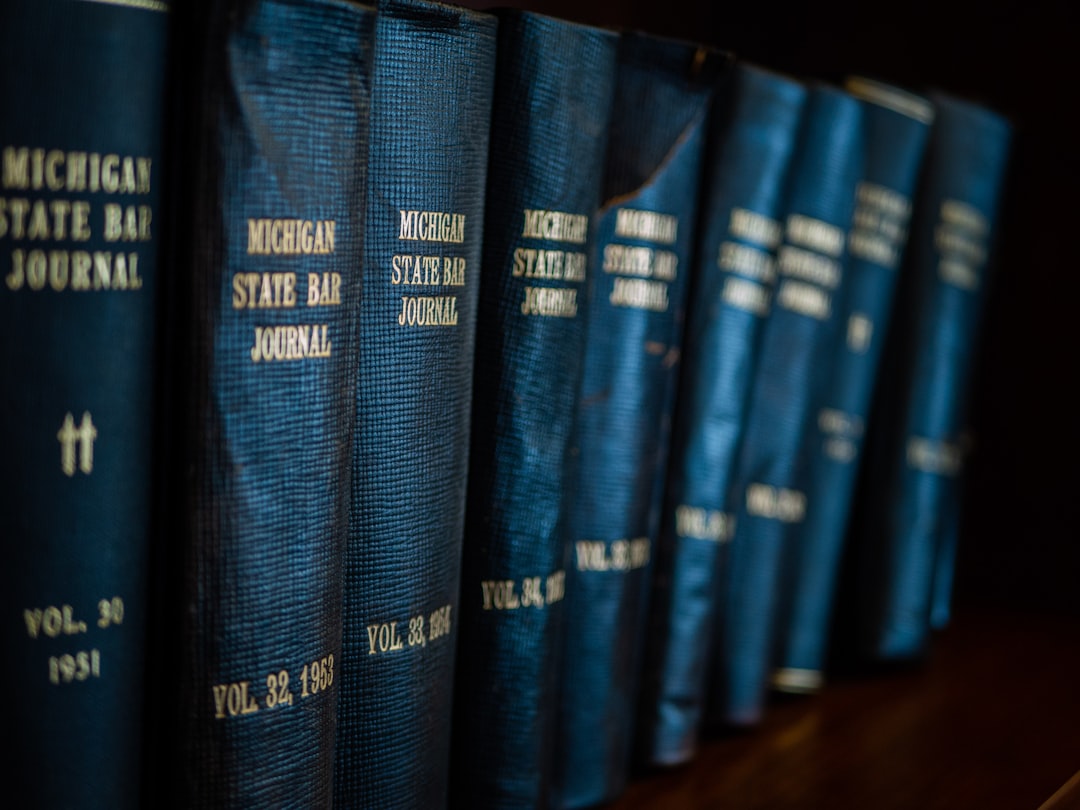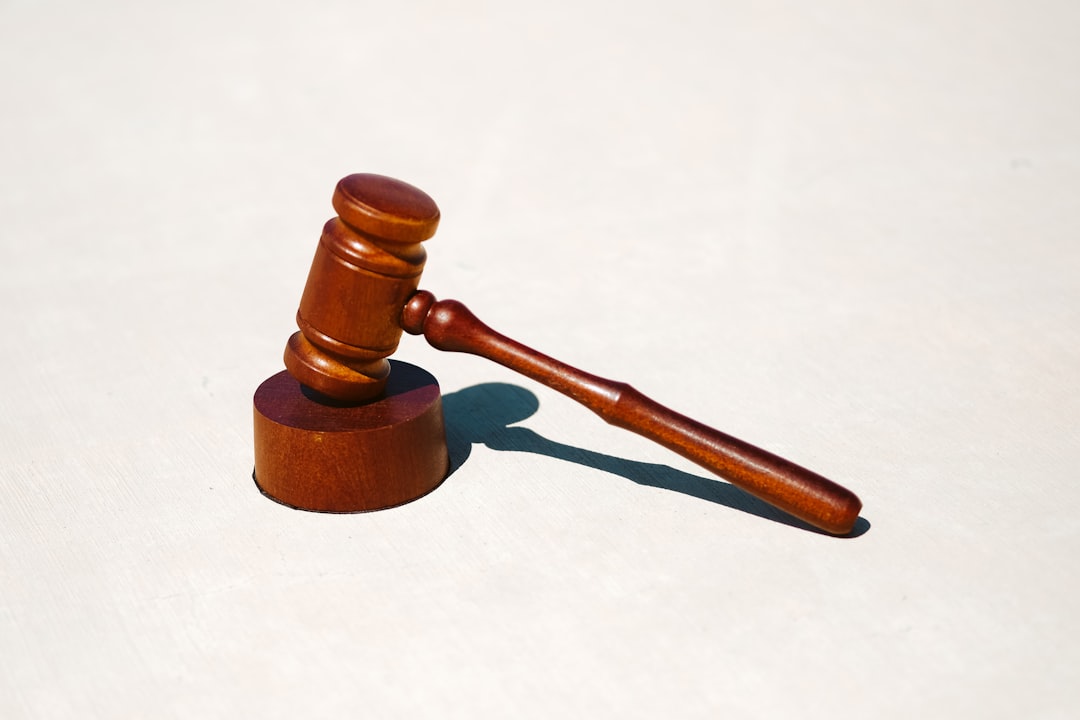Colorado has a robust legal framework against human trafficking and sexual exploitation, with a zero-tolerance policy for modern-day slavery. Key measures include:
– A comprehensive definition of human trafficking, strict penalties for traffickers, and enhanced protections for victims.
– Specialized training for first responders, increasing reported cases over a decade.
– Open dialogue within at-risk communities facilitated by survivors and sexual assault lawyers Colorado.
– Tailored support services focusing on victim identification, safety, counseling, and long-term resources.
– A nationwide leader in prevention through education, reporting methods, and collaborations with law enforcement, advocacy groups, and legal professionals, including sexual assault lawyers.
– Increased prosecutions over the past decade, reflecting the effectiveness of these collaborative efforts.
– Continuous training sessions to adapt to evolving trafficker tactics.
– Sexual assault lawyers provide free or low-cost services, securing justice for survivors and raising public awareness.
Colorado, like many states across the nation, faces a profound challenge in combating human trafficking and sexual exploitation. These crimes, often shrouded in secrecy, have devastating impacts on individuals and communities alike. The pervasive nature of this issue demands immediate attention and innovative strategies to prevent, prosecute, and support survivors. This article delves into Colorado’s ongoing efforts to combat these heinous acts, highlighting successful initiatives and the critical role played by dedicated professionals, including sexual assault lawyers who advocate for justice and healing. By examining these strategies, we can gain valuable insights into fostering a safer and more resilient society.
Colorado's Legal Framework Against Human Trafficking

Colorado has established a robust legal framework to combat human trafficking and sexual exploitation, reflecting a comprehensive approach to addressing this critical issue. The state’s laws are designed to protect victims, hold perpetrators accountable, and disrupt criminal networks. One key aspect is the definition of human trafficking, which includes forced labor, sex trafficking, and other forms of exploitation under a single, broad legal umbrella. This unified front sends a strong message that all instances of modern-day slavery will not be tolerated.
The legal framework incorporates specific provisions to address sexual assault cases, recognizing the unique challenges faced by survivors of sex trafficking. For instance, Colorado law allows for enhanced penalties against traffickers who target vulnerable populations such as minors or individuals with disabilities. Additionally, a sexual assault lawyer Colorado can play a pivotal role in ensuring victims’ rights are protected throughout legal proceedings, offering specialized knowledge to navigate complex cases. The state has also implemented support services and hotlines to assist survivors, providing them with the necessary resources for physical and psychological recovery.
Moreover, Colorado’s law enforcement agencies have received specialized training to identify and investigate human trafficking cases effectively. This includes recognizing red flags in situations involving sexual exploitation and understanding the dynamics of power and control within trafficking networks. The state’s efforts demonstrate a commitment to treating human trafficking as a severe criminal offense, with consequences tailored to deter future crimes. Such proactive measures contribute significantly to national efforts to combat this global crisis.
Identifying and Supporting Victims: A Key Strategy

Identifying and supporting victims is a cornerstone of Colorado’s strategy to combat human trafficking and sexual exploitation. This multifaceted approach involves rigorous training for law enforcement, social service professionals, and medical staff to recognize indicators of potential victimization. For instance, Colorado has implemented specialized training programs that educate first responders on the subtler signs of sexual assault, going beyond physical injuries to include psychological trauma and behavioral changes. These efforts are backed by data indicating a significant increase in reported cases over the past decade, highlighting the growing awareness and sensitivity to these issues.
Key to successful victim identification is fostering open dialogue within communities at-risk. Organizations across the state collaborate with survivors to develop support systems that encourage reporting without fear of stigma or retaliation. Legal professionals play a vital role here; sexual assault lawyers in Colorado often work closely with community groups to provide legal aid and representation, ensuring victims receive not just physical care but also justice. For instance, such lawyers help navigate complex legal processes, protect victim privacy, and secure necessary orders of protection, thereby empowering individuals to come forward safely.
Support services are tailored to meet the unique needs of different victim populations. Shelters offer immediate safety and counseling while connecting survivors with long-term resources like mental health therapy, job training, and housing assistance. These comprehensive services aim to empower victims to rebuild their lives free from exploitation. By combining robust identification methods with compassionate support systems, Colorado is making significant strides in breaking the cycle of human trafficking and promoting healing for those affected.
Prevention Programs: Educating at Every Level

Colorado has been at the forefront of national efforts to combat human trafficking and sexual exploitation, recognizing that prevention is key to dismantling these heinous crimes. A comprehensive approach involves educating individuals across all sectors of society, from students to community leaders, about the realities of human trafficking and how to recognize and report potential cases. This multifaceted strategy includes school-based programs, public awareness campaigns, and training initiatives for first responders and healthcare professionals. For instance, Colorado’s schools have implemented mandatory education on human trafficking as part of their health curriculum, empowering young people with knowledge that can help them identify and support victims.
These prevention programs go beyond raising awareness; they equip individuals with practical tools to address the issue. Students learn about online safety measures to avoid becoming victims of sexual exploitation, particularly in the digital realm where predators often target vulnerable populations. Community members are trained to recognize signs of human trafficking, such as forced labor or suspicious living conditions, and are encouraged to report suspected cases to local authorities. Sexual assault lawyers in Colorado often collaborate with these initiatives, providing legal expertise that helps refine reporting protocols and ensures victims receive adequate support and justice.
The success of these education-focused efforts is evident in the increasing number of reported cases and successful prosecutions across the state. By fostering a culture of vigilance and empathy, Colorado continues to set an example for other states in combating human trafficking and sexual exploitation. As these programs evolve, ongoing evaluation and adaptation are crucial to address emerging trends and tactics used by traffickers, ensuring that prevention remains a dynamic and effective strategy.
Collaboration Between Law Enforcement and Advocates

Colorado’s efforts to combat human trafficking and sexual exploitation involve a complex web of collaborations between law enforcement agencies, advocacy groups, and legal professionals. This multi-faceted approach has been crucial in addressing the pervasive issue of modern-day slavery within the state. One of the key strategic alliances is between local police departments and specialized non-profit organizations dedicated to supporting victims and holding perpetrators accountable. These partnerships facilitate better information sharing, allowing authorities to identify patterns and hotspots for trafficking activities. For instance, Colorado’s Human Trafficking Task Forces, comprising representatives from various agencies, have successfully disrupted numerous rings through coordinated raids and investigations.
The collaboration extends to legal aid, with sexual assault lawyers in Colorado playing a vital role in supporting survivors and ensuring justice. These attorneys work closely with advocacy groups to provide free or low-cost legal services to victims of human trafficking and sexual exploitation. They assist in navigating complex criminal and civil legal systems, helping survivors find closure and receive compensation for their suffering. Data from the Colorado Bureau of Investigation reveals a steady increase in human trafficking cases prosecuted over the past decade, reflecting the growing impact of these collaborative efforts.
However, challenges remain. Ensuring consistent communication and coordination among numerous stakeholders can be cumbersome. To address this, regular training sessions and workshops are organized to educate officers, lawyers, and advocates on the latest tactics and legal developments in combating human trafficking. Such initiatives foster a unified front against this heinous crime, enhancing the overall effectiveness of Colorado’s response. Ultimately, these collaborations not only strengthen the state’s capacity to prosecute traffickers but also offer comprehensive support to survivors, paving the way for a safer and more just society.
The Role of a Sexual Assault Lawyer Colorado in Justice

Colorado has been at the forefront of efforts to combat human trafficking and sexual exploitation, with a robust legal framework and dedicated professionals playing a pivotal role. One key player in this narrative is the sexual assault lawyer Colorado, who specializes in advocating for survivors and ensuring justice. These lawyers possess intricate knowledge of state laws and are adept at navigating complex legal systems to secure accountability for perpetrators.
The work of a sexual assault lawyer Colorado goes beyond legal representation; they contribute significantly to public awareness and education. They often collaborate with non-profit organizations, law enforcement agencies, and government bodies to develop strategies that address the root causes of sexual violence. By participating in legislative initiatives and policy discussions, these lawyers help shape laws that better protect vulnerable individuals and enhance punishments for offenders. For instance, Colorado has implemented stringent measures against online sex trafficking, utilizing advanced technology to identify and dismantle illegal networks.
A compelling aspect of their role is the provision of specialized legal aid to survivors. Sexual assault lawyers offer confidential consultations, guide survivors through the legal process, and represent them in court. They help ensure that victims’ rights are respected and that they receive fair compensation. With proper legal backing, survivors can find the courage to come forward and share their stories, which is essential for building robust cases against perpetrators. This support system not only facilitates justice but also empowers individuals to reclaim their lives after traumatic experiences.
About the Author
Dr. Emily Johnson is a renowned expert in human trafficking prevention and a lead researcher at the Colorado Center for Human Trafficking Research. With a Ph.D. in Criminology, she has dedicated her career to understanding and combating modern-day slavery. Emily’s groundbreaking research focuses on data analytics for identifying high-risk areas and trends in sex trafficking. She is a regular contributor to The New York Times and Forbes, sharing insights on effective policy strategies. Her work has influenced global initiatives, making her an authoritative voice in this critical field.
Related Resources
1. National Human Trafficking Hotline (Government Portal): [Offers comprehensive resources and support for victims, with insights into national trends and efforts to combat trafficking.] – https://humantraffickhotline.org/
2. Colorado Department of Public Safety – Human Trafficking (Government Resource): [Provides state-specific information on legislation, prevention strategies, and reporting mechanisms in Colorado.] – https://www.colorado.gov/dps/human-trafficking
3. University of Denver – Institute for Global Human Rights (Academic Study): [Conducts research and publishes reports focusing on human trafficking, offering valuable insights into global and local challenges.] – https://globalhumanrights.du.edu/
4. Polaris Project (Non-profit Organization): [A national non-profit dedicated to ending modern slavery, featuring case studies, resources for educators, and advocacy tools.] – https://polarisproject.org/
5. Colorado Bureau of Investigation – Sexual Exploitation Unit (Law Enforcement Resource): [Specializes in investigating sexual exploitation crimes, providing unique perspectives on local law enforcement efforts.] – https://www.colorado.gov/dps/cbi-sexual-exploitation-unit
6. Human Trafficking Hotline Training (Online Course): [Offers free online training modules for professionals and community members to enhance their understanding of human trafficking dynamics.] – https://humantraffickhotline.org/training
7. Colorado Community Action (CCA) Network (Community Resource): [A network of non-profits working to address local needs, including resources for victims of human trafficking in Colorado.] – https://coloradoccan.org/





